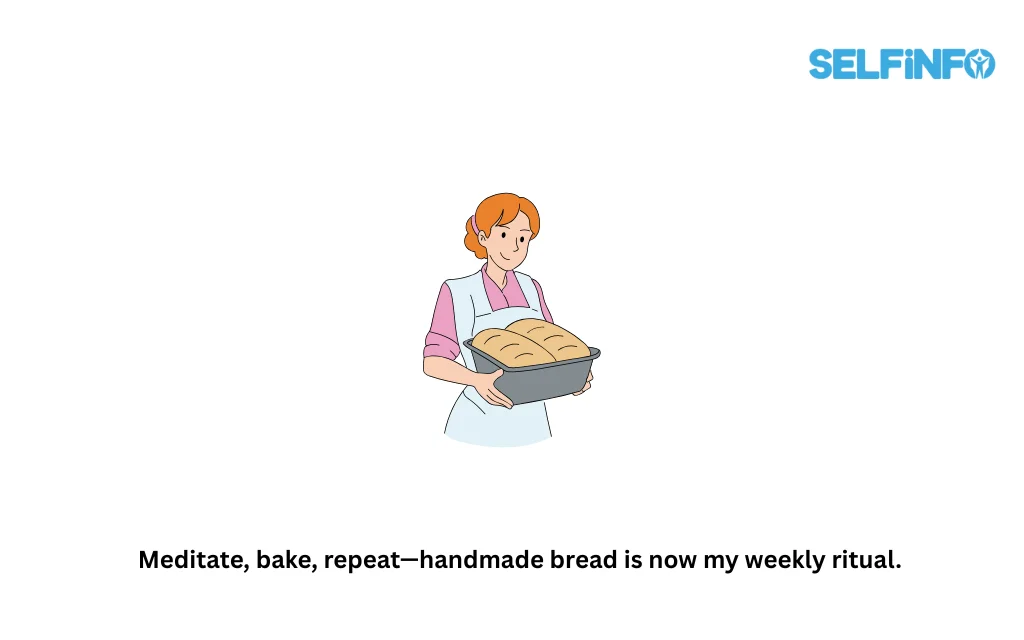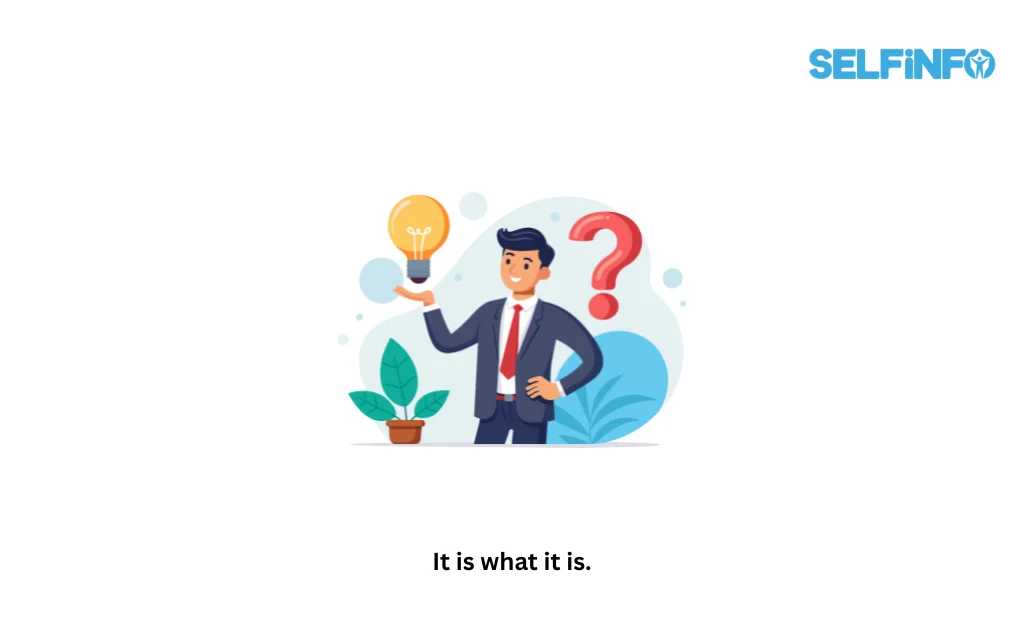Meditate with each movement flour, salt, water, yeast. The cold stone countertop grounds me as I press the soft, warm dough into my palm. The cabinets nudge my hips. In my mind, I hear the rhythm of my breath.
The dough changes as I knead it. The dough gets more pliable and elastic, making it ready to rise and bake into a crispy loaf.
Making bread transforms me. My mind stops talking. I enter the present.
For months, I have battled an erratic meditation practice. I feel such a sense of accomplishment and calm when I am able to meditate and clear my mind.
However, those moments are rare, as any novice meditator is aware.
Typically, my disorganized thoughts alternate between monitoring the time, attempting to silence the voice in my head, and reprimanding my body for restless movements.
Before realizing that any act can be a meditation, I pushed myself to meditate correctly with limited success.
Through the writings of Eckhart Tolle and Thich Nhat Hanh, I came to understand this basic truth. Sitting in contemplative pleasure for twenty minutes a day with a perfectly straight spine is not that significant. Being present in the moment is what matters. Living your life. observing what it is. observing life.
We spend so much of our days absorbed in our thoughts. Even whether we are in the shower or on the train, we are already preparing for the next big thing, giving that crucial presentation, and having that challenging conversation in our minds.
This is an odd way to live, if you take a step back and consider it. We are losing out on our lives as a result of all of this planning, fretting, and pondering.

When I relocated to Paris, France, a few years ago, I realized this. I had spent my entire life in the United States, leading an overachieving, type-A personality.
It is a typical cycle. While trying to update my belongings to fit my ideal lifestyle—a larger apartment, a new car, high thread count sheets, and gourmet kitchen appliances—I worked hard in school to get into a reputable university, then I got a “good job” and worked to get promoted.
My entire existence was focused on getting to some unspecified moment where I would have “made it” and be able to enjoy a well-earned vacation.
After that, I relocated to Paris.
All of my knowledge about lifestyle and prestige suddenly become meaningless. Rather than always discussing work, my new French pals spoke about food, movies, vacations, books, hobbies, and everything else but work.
Every day I came across people who truly loved their life. hanging around with buddies. enjoying delectable lunches. pursuing their artistic endeavors in addition to their professional lives. spending weekends hiking in the mountains and getting back in touch with nature.
I came to the realization that my life would not begin at some vague future date after moving abroad. I was losing out on life because I was always planning, thinking, and obsessing! I became acutely aware that my life was taking place at this particular time.
We are losing out on opportunities to spend time with our family because we are living in our own thoughts. chances to stand at the bus stop and enjoy the sensation of sunshine on our faces. We have the chance to experience the spark of creativity that comes from seeing a child play. chances to re-establish ourselves in nature, even for a brief period of time.
I have been slowly but surely trying to live my life every day for the past few years. attempting to live in the here and now. I am trying to be present right now.
I have started a new meditation routine as a result. Every week, I prepare our bread by hand.

Once you understand the method, it does not take that long. However, it is such earthy, salty, life-sustaining food.
I feel more connected to the generations who have done this everyday activity by making bread by hand. I go slowly. weighing the yeast, salt, and flour. then gradually adding warm water to create a dough. Then came the exciting part: using my hands to dig in. The physical experience of kneading bread is almost childlike.
I am reminded of life’s small joys when I bake bread. It reminds me how important it is to take care of our bodies and maintain good health. Week after week, the wonder of metamorphosis is revealed to me again. The wonder of how simple components can be transformed into something so tasty, enjoyable, and essential to our diet.
Maybe baking bread is not your thing. However, any everyday task, such as cleaning the dishes, brushing your teeth, or ironing your clothes, can be transformed into a meditation exercise.
5 Ways to Incorporate Mindfulness into Your Daily Routine
1. Notice, don’t think.

Imagine that you are a tourist or a student who is experiencing this activity for the first time. Do not categorize, judge, or consider your actions. Just take note. Have an open, novice’s mind and pay attention to every detail.
2. When in doubt, check your breathing.
Take a moment to listen to and feel your breathing if you notice that your mind are straying from the activity at hand. You can return to the present by simply focusing on a few breaths.
3. You have five senses, use them.
Being mindful entails genuinely experiencing the present moment. There is more to this than merely observing appearances. How does it smell? Use your hands to feel it. How does it feel? Temperature? Do you hear anything?
4. Have a strategy to handle nagging thoughts.
Everybody occasionally has persistent thoughts, therefore you need a plan for dealing with them. I prefer to always carry a notebook with me so I can jot down any nagging thoughts, problems, or to-do lists. Writing things down allows your mind to unwind since it knows you may revisit them at a later time.
5. It is what it is.

Analyzing your mindfulness experience is not necessary. Do not stress over the meaning of it all or if you are paying enough attention. Simply make an effort to be mindful each day. Give the present moment more of your attention. Allow the event to unfold naturally.
For me, this works, even though it may not be the ideal of a perfect, isolated meditation practice. It is effective because it leads me to the appropriate location, which is the here and now.
Making bread each week helps me rediscover how baking, kneading, and mixing allow me to be more completely present and connect with life. Furthermore, is not it the main goal of meditation practice?
